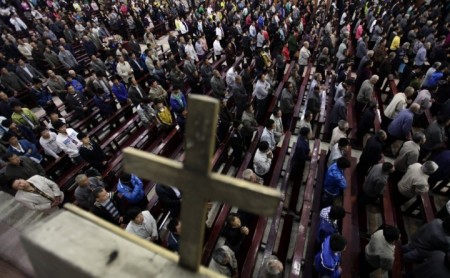China bans African students from worshiping in churches to prevent 'foreign infiltration'

The Chinese government has banned African international students from worshiping in Christian churches under the pretext of “preventing foreign infiltration through religion,” a persecution watchdog group has revealed.
A group of over 80 African students who are residing in a city in the northeastern province of Liaoning told Chinese persecution watchdog Bitter Winter that in September, the person in charge of the Three-Self church that they attended received a government order prohibiting foreigners from participating in gatherings at the church.
“We just want to have a place to congregate,” one student told the outlet.
A Chinese believer at the church said that at an “anti-religious infiltration” symposium held by the local government in August, the officials questioned the person in charge of the church about foreign-related activities.
Shortly after the symposium, the international students were driven out of the church.
“In our hearts, we were unwilling to see them leave,” the Chinese believer said.
The government also pressured or threatened other Christian meeting venues. When the African students asked to be allowed to attend gatherings at another Three-Self church, they were turned down.
A similar incident occurred at a university in the central province of Hubei, where a church attended by over 40 African students received repeated threats from government officials who demanded the church’s director drive out the international students.
The students now are forced to worship in secret, disguising their gatherings like birthday parties, according to Bitter Winter.
One of the students said that he doesn’t understand how the government can claim that there is “freedom of belief” in China. “I don’t understand why China’s rulers won’t allow foreigners to hold religious gatherings,” the student said. “This has forced us to practice our faith in hiding.”
Bitter Winter also revealed that universities in the provinces of Heilongjiang, Jilin, Henan, and elsewhere are required to investigate the religious status of international students and teachers.
An administrator at a university in Jiujiang, a prefecture-level city in the southeastern province of Jiangxi, said that the government secretly monitors African students.
“If any people are discovered to be too close to them, both parties will be watched and investigated. But most African students are completely unaware that they’re being monitored,” the administrator explained.
“As soon as African students are discovered attending gatherings at house churches or spreading the Gospel to other students, they will be expelled from the school immediately,” the administrator said.
According to the administrator, the school has already expelled one African student for preaching the Gospel to Chinese classmates. The student was later deported to his home country.
Under Chinese law, foreigners are prohibited from setting up religious organizations or proselytizing in China, although the law wasn’t enforced until President Xi Jinping took office in 2012, according to the South China Morning Post.
Recently, 13 South Korean families living in China as part of a mission group were deported after Communist officials decided their presence in the country was “illegal” due to their evangelistic work.
China is ranked 27th on Open Doors USA’s World Watch List of 50 countries where it's most difficult to be a Christian.
In recent years, the Communist Party government has banned online sales of Bibles, leveled churches, and arrested hundreds of Christians for "inciting subversion of state power."
In July, it was reported that since the Regulations on Religious Affairs legislation was implemented last year, schools around China have taught children that Christianity is an “evil cult.”





















